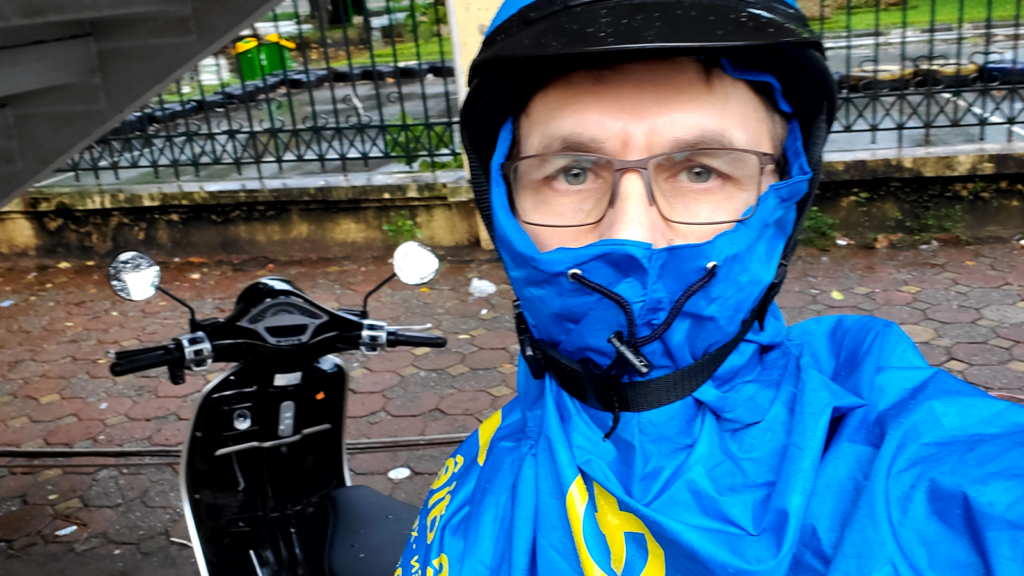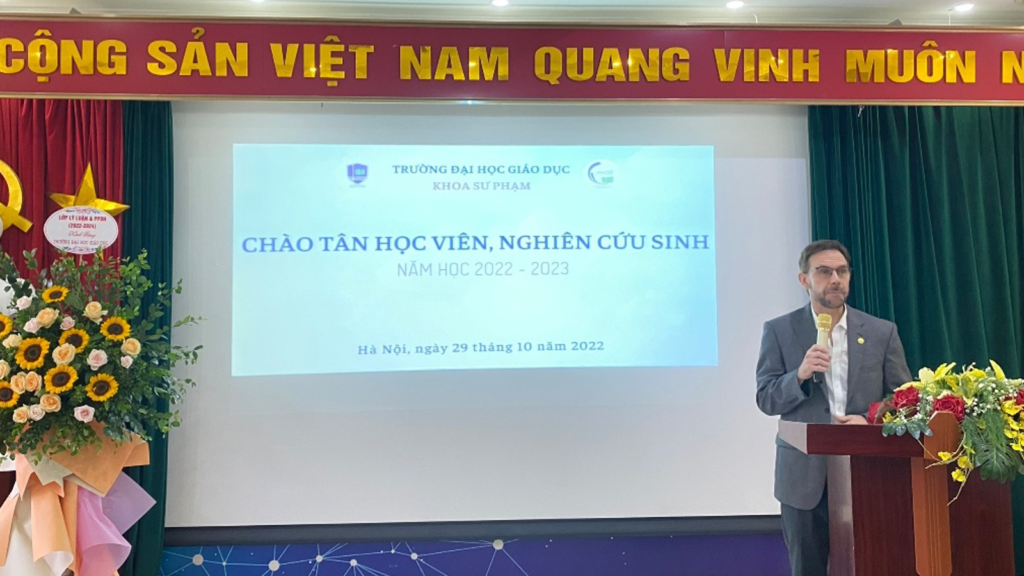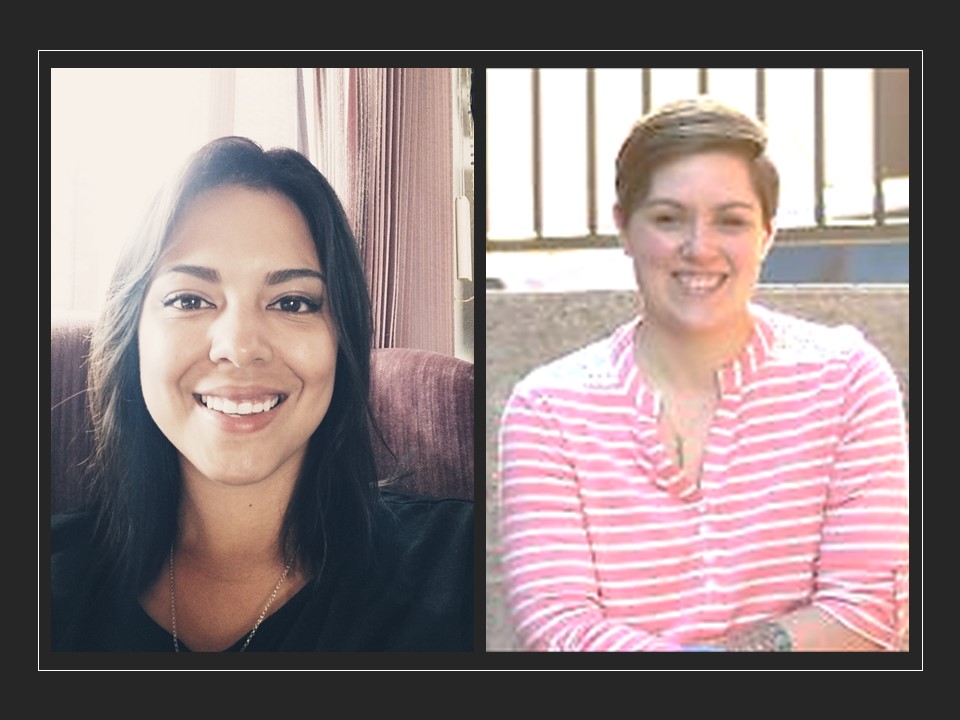
Inclusivity and supportive learning environments are crucial for our students’ success, that is why we’ve asked Dr. April LaGue for advice on how we can better develop our curriculum and learning environments to support the LGBTQAI+ community. Read on to find out more!
Providing an inclusive and affirming curriculum for all students
In the realm of education, it is crucial that our curriculum aligns with the mission and vision of the College of Education. This sentiment is particularly emphasized by Dr. LaGue, a faculty member responsible for delivering instruction to students pursuing both school and mental health counseling degrees. Dr. LaGue underscores the significance of creating an environment where all students feel acknowledged, valued and supported.
To achieve this, Dr. LaGue proposes several essential elements that should be incorporated into our curriculum. This includes:
- Accessibility and Innovation: By ensuring that our curriculum is accessible to all learners, we can break down barriers and provide equal opportunities for every student. Moreover, embracing innovation when designing our curriculum allows us to engage students in dynamic and transformative learning experiences.
- The need for a diverse and representative author population as well as historical narratives: By incorporating perspectives from various backgrounds and cultures, and presenting a comprehensive view of history that incorporates the experiences of marginalized communities, we can foster inclusivity and provide students with a well-rounded education that reflects the diversity of our society.
- Delivering education through a social justice lens: We need to integrate anti-bias education, which challenges stereotypes, biases, and prejudices. By doing so, we foster empathy, promote inclusivity, and encourage students to critically analyze societal issues through a lens of fairness and equality.
- Regular assessment and revision of our curriculum: This ensures that we address any gaps, strengthen its impact, and continue to provide an educational experience that meets the needs of all students
Providing an inclusive and supportive learning environment for LGBTQAI+ students
To create a truly supportive learning environment, it is essential that we take proactive steps to foster inclusivity and acceptance. Here are six key strategies Dr. LaGue emphasized that can contribute to this important goal:
- Establishing explicit classroom guidelines that prohibit any form of bullying, harassment, and discrimination based on sexual orientation or gender identity. By clearly outlining these expectations, we set a foundation for respectful and inclusive interactions among students.
- Displaying inclusive and affirming symbols, posters, or literature throughout the learning environment can serve as powerful visual reminders of diversity and acceptance. This can help create a safe and welcoming space for students who identify as LGBTQAI+.
- Actively engaging with LGBTQAI+ organizations or experts to gain insights and resources. By seeking their expertise, we can gain a deep understanding of the challenges faced by LGBTQAI+ individuals and access relevant materials that can enhance our curriculum and teaching approaches.
- Avoid assumptions about students’ identities and utilize gender-neutral language whenever appropriate. Respecting students’ self-identification, chosen names, and pronouns is essential in creating an inclusive environment that acknowledges and affirms their individuality.
- Collaborate with local or on-campus LGBTQAI+ organizations or community centers. By inviting guest speakers from these organizations, we can provide students with diverse perspectives and experiences, fostering a greater understanding and appreciation for LGBTQAI+ issues.
- Foster a culture where differences are celebrated and respected. This can be achieved by promoting open dialogue, understanding, and empathy through discussions, presentations, or awareness campaigns focused on LGBTQAI+ topics. By encouraging students to actively engage in these conversations, we empower them to become advocates for equality and inclusion.
What Dr. LaGue has learned while working with LGBTQAI+ students in supporting them
Dr. LaGue believes the importance of recognizing intersectionality is a crucial aspect of understanding the experiences of individuals within the LGBTQAI+ community. Their journeys are influenced by the complex interplay of multiple identities, including race, ethnicity, disability, and socioeconomic status, alongside their LGBTQAI+ identity. To truly support and empower these individuals, it is essential to actively listen to their stories, respect their self-identified labels, and allow them to define their own experiences. By fostering a non-judgmental learning environment that promotes empathy and validation of their experiences and concerns, we can create a space where every individual feels seen, understood, and valued.
Conclusion & Resources
In summary, Dr. LaGue underscores the importance of aligning our curriculum with the College of Education’s mission and vision. Through our collective efforts, we can ensure that all students feel valued, respected, and empowered to thrive academically and personally and always feel that they have a safe space to express themselves. Dr. LaGue devotes her work to her students’ success and is a valued member of the Oregon Department of Education LGBTQ2SIA+ student success committee. Click here for more LGBTQ2SIA+ resources.













